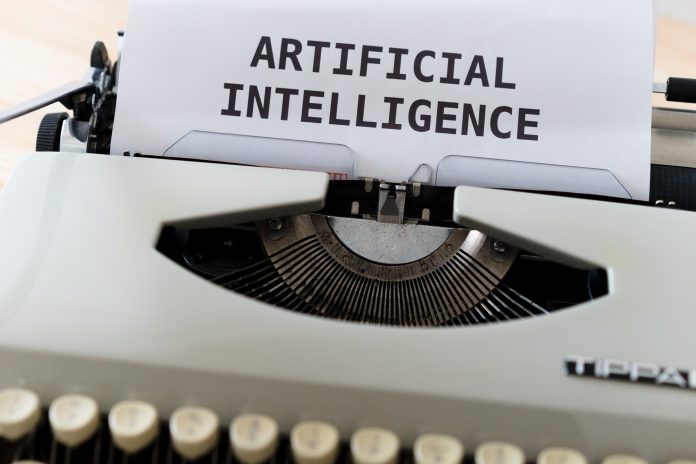Introduction:
Artificial Intelligence (AI) and automation have become key drivers of transformation in the modern workplace. From streamlining operations to enhancing productivity, AI technology is revolutionizing various industries. In this comprehensive guide, we will explore the impact of AI and automation in the workplace, shed light on AI chatbots, real-world AI applications, and discuss the future of artificial intelligence. Whether you are an employee or a business owner, understanding these concepts is crucial for staying ahead in the evolving landscape of work.
1: Understanding Artificial Intelligence (AI)
Artificial Intelligence refers to the simulation of human intelligence in machines, enabling them to perform tasks that typically require human intelligence. AI technology encompasses various subfields, including machine learning, natural language processing, computer vision, and more. By analyzing large amounts of data and recognizing patterns, AI systems can make informed decisions and perform complex tasks efficiently.
2: Automation in the Workplace
Automation involves the use of technology to automate repetitive or mundane tasks that were previously performed by humans. With advancements in AI, automation has expanded to include intelligent systems capable of decision-making and problem-solving. By automating routine tasks, businesses can increase efficiency, reduce errors, and free up human resources for more strategic and creative endeavors.
3: AI Chatbots Enhancing Customer Experience
AI chatbots have emerged as valuable tools for businesses to improve customer service and support. These chatbots utilize AI algorithms to understand and respond to customer inquiries in real-time. By leveraging natural language processing and machine learning, AI chatbots can provide personalized assistance, streamline customer interactions, and handle a large volume of inquiries simultaneously, enhancing customer satisfaction.
4: Real-World Applications of AI
AI technology has permeated various industries, transforming the way tasks are performed and creating new opportunities. In healthcare, AI is revolutionizing diagnostics, drug discovery, and patient care. In manufacturing, AI-powered robots are increasing efficiency and precision. Financial institutions utilize AI for fraud detection and risk assessment. These real-world applications demonstrate the wide-ranging impact of AI across different sectors.
5: Leading AI Companies
The AI landscape is rapidly evolving, and numerous companies are at the forefront of AI research and development. Some of the leading AI companies include [Insert leading AI company names], which are pushing the boundaries of AI innovation. These companies invest in cutting-edge research, develop AI technologies, and drive the adoption of AI solutions across industries.
Frequently Asked Questions (FAQs):
Q1: What is the future of artificial intelligence?
A1: The future of artificial intelligence is promising. With ongoing advancements, AI is expected to continue transforming industries, creating new job opportunities, and enhancing efficiency and productivity in the workplace.
Q2: How does AI technology impact job roles?
A2: AI technology automates repetitive tasks, allowing employees to focus on higher-value work that requires creativity, problem-solving, and critical thinking. While certain job roles may evolve or be replaced, new roles are emerging in AI-related fields.
Q3: What are the benefits of AI and automation in the workplace?
A3: AI and automation offer numerous benefits, including increased productivity, improved accuracy, cost savings, enhanced customer experience, and the ability to handle large volumes of data efficiently.
Q4: Can AI chatbots replace human customer service representatives?
A4: AI chatbots complement human customer service representatives by handling routine inquiries and providing instant support. However, complex or sensitive issues may still require human intervention.
Q5: How can businesses incorporate AI into their operations?
A5: Businesses can integrate AI by identifying areas where automation can streamline processes, implementing AI-powered tools and systems, and fostering a culture that embraces AI adoption and upskilling.
Q6: Is AI technology accessible to small and medium-sized businesses?
A6: Yes, AI technology is becoming increasingly accessible to businesses of all sizes. Many AI solutions are scalable and customizable, catering to the needs and budgets of small and medium-sized enterprises.
Q7: Are there ethical considerations surrounding AI technology?
A7: Yes, ethical considerations such as data privacy, bias in algorithms, and the impact on employment need to be addressed as AI technology evolves. Organizations and policymakers are actively working on developing guidelines and regulations.
Q8: What are some challenges in implementing AI in the workplace?
A8: Challenges in implementing AI include data quality and availability, integrating AI systems with existing infrastructure, ensuring transparency and accountability, and providing adequate training and upskilling for employees.
Q9: Can AI technology learn from human feedback?
A9: Yes, AI systems can learn and improve based on human feedback. Machine learning algorithms can be trained using labeled data and continuously refined to enhance performance and accuracy.
Q10: How can individuals prepare for the future of work with AI and automation?
A10: Individuals can prepare for the future of work by developing skills that are complementary to AI technology, such as creativity, critical thinking, adaptability, and emotional intelligence. Lifelong learning and staying updated with industry trends are also essential.
Conclusion:
Artificial Intelligence and automation are reshaping the workplace, offering immense potential for improving productivity, customer experience, and job satisfaction. Understanding the fundamentals of AI, exploring real-world applications, and staying informed about the latest advancements will empower individuals and businesses to navigate the evolving landscape of work successfully. Embracing AI technology and leveraging its capabilities can lead to enhanced efficiency, innovation, and competitive advantage in the ever-changing world of business.


